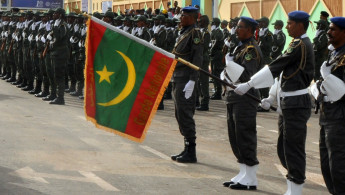What's behind the shutdown of Mauritania’s only Islamist scholars' training centre?
As soon as local, municipal and legislative elections wrapped up, the Mauritanian president began his most audacious procedure against a religious institution to date. The Islamist Scholars' Training Center in Nouakchott has had its licence revoked for "spreading extremism", the governing party said in an official statement.
In a response, Mohamed Alhassan Ould Daddaou said the closure of the centre was "unjustifiable", saying the school "has no relations with politics nor does it belong to a political party".
In an earlier election rally, President Mohamed Abdel Aziz described political Islam as "dangerous". The back-and-forth dispute is believed to have started when Ould Daddaou said the current state of Arab countries was "due the return of dictatorships" after much of the region saw a backlash following the Arab Spring.
In an interview with AlJazeera Arabic, Alhafad Ould Gadda, a Mauritanian political analyst, said the closure of the Islamist Scholars' Training Center was the "result of exterior pressure". He added that the "Mauritanian-Saudi-Emarati closeness is the main reason for closing the centre, to target Ould Daddaou personally".
The Mauritanian president's power grab in a military coup was welcomed by Saudi Arabia. Then, in 2015, Ould Abdel Aziz paid an official visit to Riyadh, and later sent a unit of 700 Mauritanian troops to join the Saudi-led coalition in Yemen.
Twitter Post
|
Mauritania's recent approach towards those Islamists who are considered reformists in the majority-Muslim country is believed to have been inspired by other nation's concerns.
Since the re-authorisation granted to Tawasul, a political party seen by many authorities as the Muslim Brotherhood's manifestation in Mauritania, it has become clear to the National Coalition for the Republic that Tawasul has succeeded in establishing a huge popular base in just ten years.
Tawasul recently gained fourteen seats out of the forty gained by the opposition in the latest election. The governing party won the rest of the 157 seats.
This rise in popular support is being seen as a threat to the government and its future in power, and appears to be the main reason Tawasul's "feeder channels" are being targeted.
The October primaries were in preparation for the National Coalition for the Republic to regain power in the 2019 presidential elections. The strategy appears reliant on government supporters creating multiple small parties which all share the NCR's political views.
In recent voting, 100 political parties competed at local, municipal and legislative levels.
This led the opposition to delay the declaration of its anticipated boycott of next year's presidential election. The opposition has so far failed to agree on a united candidate for the presidency.
Meanwhile, the dominance of power through the recent election has led to further steps towards another major success. On October 29, Mohamed Ould Abdel Aziz reshaped his government by sacking five former officials and appointing Mohamed Salem Ould Albachir as the new prime minister to arm the party with more loyal affiliates, ensuring a tight grip on all state institutions and ministries.
Habibulah Mohamed Lamin is a journalist formerly based in the Western Sahara refugee camps in Tindouf, Algeria. He has worked as a translator and is director of Equipe Media Branch, a group of media activists covering Western Sahara. His work focuses on the politics and culture of the Maghreb.
Follow him on Twitter: @habibullahWS


![Minnesota Tim Walz is working to court Muslim voters. [Getty]](/sites/default/files/styles/image_684x385/public/2169747529.jpeg?h=a5f2f23a&itok=b63Wif2V)






